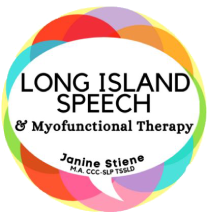Blog
Traumatic Brain Injuries in Children – Signs and Symptoms
The topic and even thought of a child going through a traumatic brain injury (TBI) can be a scary and daunting subject. Bicycles, scooters, rollerblades, pools, cars, sports, etc. can all lead to TBIs, so it is important to always take necessary precautions. However, should the unfortunate circumstance happen, it is equally as important to understand the signs and symptoms if your child may be suffering from a TBI.
Signs and symptoms of a TBI can occur anywhere from minutes, hours, days, or sometimes weeks; so, it is important to keep an eye out for any abnormalities if you know your child has had a bump to the head. TBIs can range from mild (such as concussions) to severe and are determined based on the nature of the injury, any loss of consciousness or loss of memories surrounding the injury (posttraumatic amnesia), and severity of any confusion or disorientation following the incident.
Signs and symptoms to be aware of include, but are not limited to: vomiting more than once, bleeding from the ear or nose, any seizures/twitches, fatigue, dizziness, nausea, blurred vision, abnormal coordination skills, slurred speech, difficulty swallowing while eating or drinking, and any disorientation or confused behavior.
Once the TBI severity has been determined, a team should be put in place as determined by the child’s doctor. This team may include of: audiologists, speech-language pathologists, occupational therapists, physical therapists, etc.
Speech-language pathologists in these situations will work on deficits in the realms of cognition (such as long/short term memory deficits, attention deficits, executive functioning, information processing, etc), language (such as word retrieval deficits, difficulty with fluent speech, difficulty following directions, language (discourse/conversational) organization deficits, abstract language/concepts, etc.), pragmatic, or social, language skills (such as topic maintenance, conversation initiation, nonverbal communication, body language, tone of voice, taking turns in conversation, tangential speech, etc.), speech (such as motor programming difficulties – apraxia, articulatory deficits or distortions – dysarthria), voice (such as difficulties in pitch/intonation, changes in vocal quality, etc), and feeding/swallowing (such as difficulties chewing and swallowing – oral and/or pharyngeal dysphagia, teaching strategies and/or modifying diets to reduce the risk of aspiration, etc.)
-Anna B.
References:
https://www.asha.org/practice-portal/clinical-topics/pediatric-traumatic-brain-injury/#collapse_1




